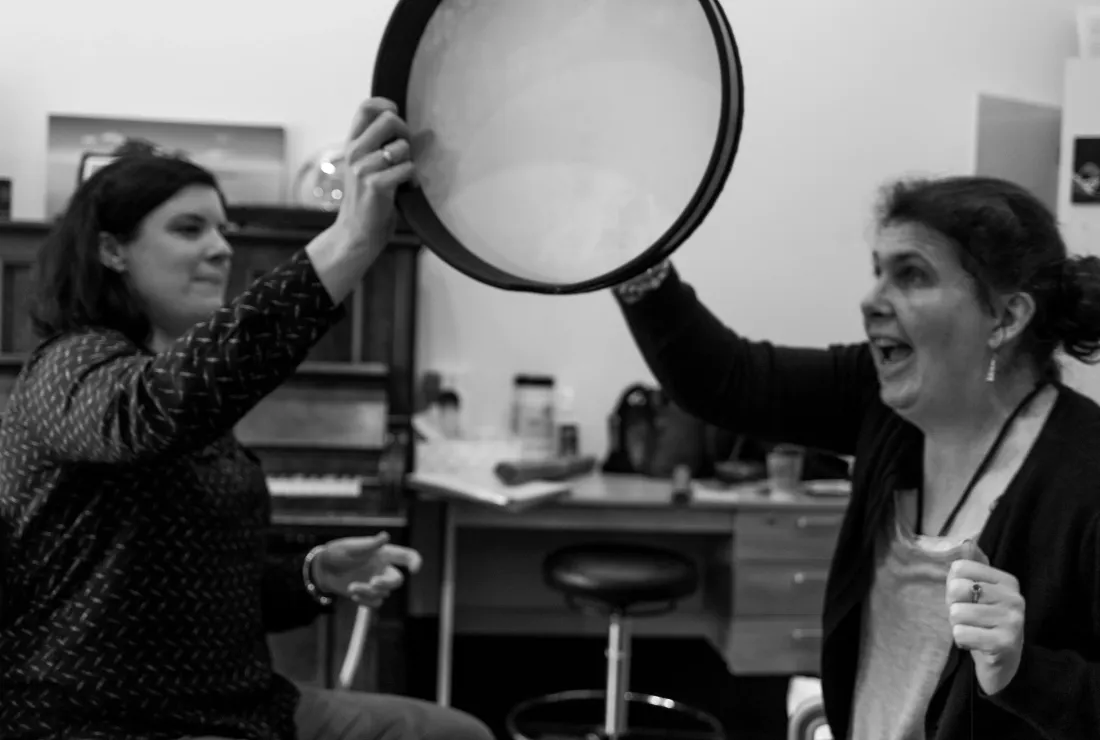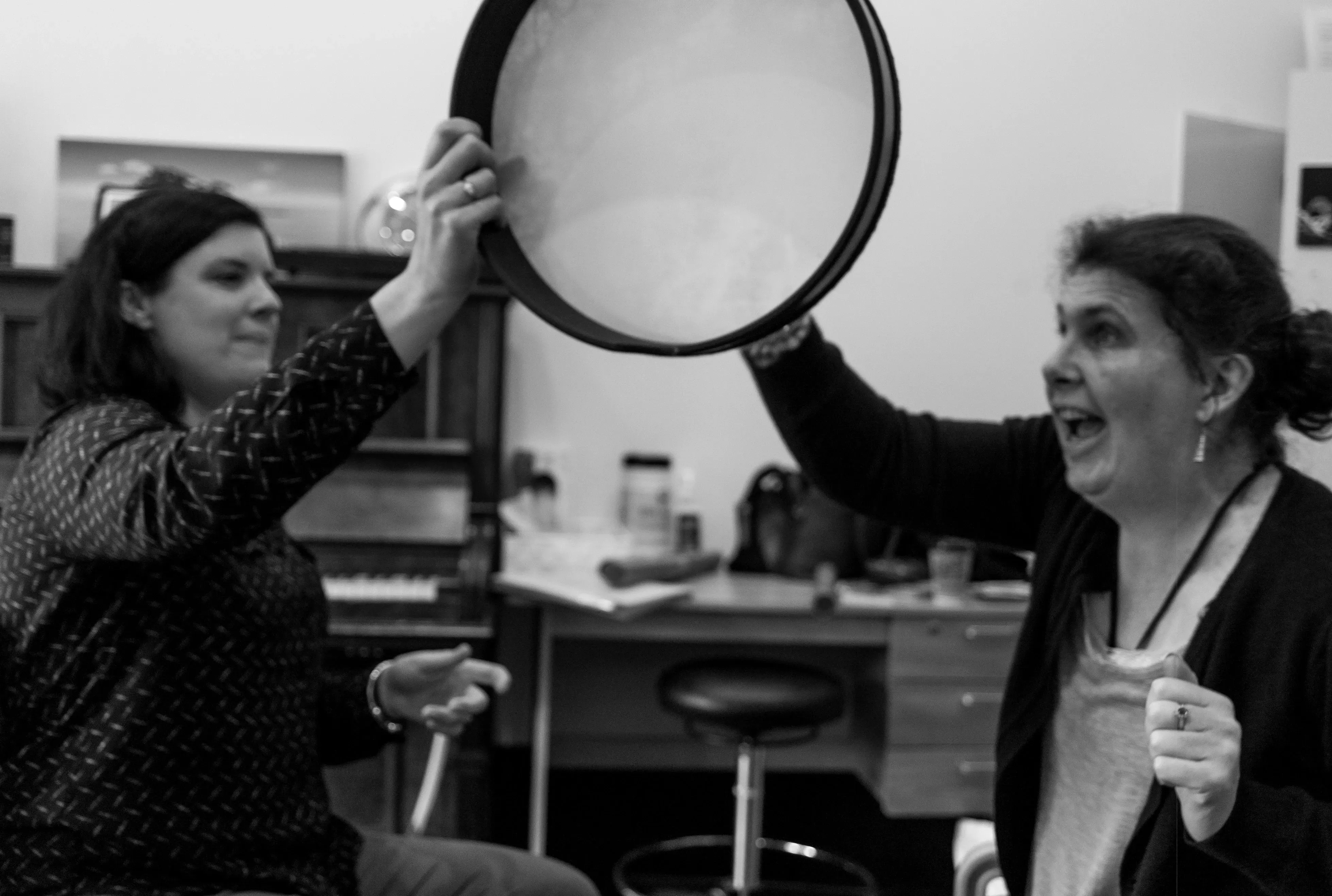Master of Music Therapy
Written by


Effective with new born babies through to old age, music therapy claims positive change for people who are under stress, have intellectual, physical or emotional needs, neurological conditions, a terminal illness or experience mental health issues. It can help to develop communication skills, extend language and intellectual development, reduce stress and tension, assist memory, and provide emotional support through times of change or crisis.
While music therapy has a much larger history and is an established and recognised profession internationally, in comparison, it is a relatively young field in New Zealand. It is growing as a profession, so I spoke to Dr Daphne Rickson (senior lecturer in music therapy at the New Zealand School of Music) and Kimberley Wade (founder of Southern Music Therapy) to find out about music therapy and some of the highlights and challenges of working in that field.
The Master of Music Therapy programme was established in New Zealand in 2004. Dr Daphne Rickson says that when the course first started, there were only 17 registered music therapists in New Zealand. This number has grown to approximately 80 today. While the number of therapists is growing, and the availability of work is increasing, Dr Rickson says “you still won’t see full time advertised jobs in the paper very often.” Graduates often set up as contractors and work across a number of fields while they build up their music therapy practice.
The Master of Music Therapy programme admits just 10 students each year. Dr Rickson describes it as “crucially intimate, and it needs to be intimate. The students need to do a lot of work on themselves and their music.”
Dr Rickson remembers a particular experience from her practice history where she was working with a young boy with Autism Spectrum Disorder. He was particularly sensitive to sound, and struggled with the unpredictability of it. She said he really didn’t like her playing the cymbal, no matter how she played it – loud, soft, near, far. But after a time, he gradually began to pick up the cymbal and experiment with it himself, and eventually gave the cymbal to Dr Rickson and began directing her how and when to play it. We discussed how this seemingly isolated experience can then transfer into other areas of his life, with him being able to better cope with other unpredictable circumstances as they arose.
“We know that music therapy is beneficial for children with ASD, but the nature of the therapy makes it difficult to provide evidence of this.” Dr Rickson has just been awarded almost $100,000 from the IHC Foundation to research the effectiveness of music therapy for children with Autism Spectrum Disorder (ASD). “By working alongside music therapists, we will develop a strong set of data that includes written reports and video, which can be further analysed to determine how effective music therapy can be,” says Dr Rickson.
Kimberley Wade has been a practicing music therapist in Christchurch for the past 10 years. “It’s an incredible career, but don’t expect it to be easy. Be prepared to work really hard!”
Kimberley has done just that. She was introduced to music therapy by chance, and for her she said it was the perfect marriage of her university majors (music and psychology). After finishing a Master of Music Therapy qualification at New Zealand School of Music, Kimberley moved to Christchurch and took a few jobs as a music therapist in special education and worked part time as a caregiver. She kept one day a week free to build up her private practice. “The first five or six years I was just finding my feet, and figuring out what kind of music therapist I wanted to be – but at the same time you need to take what there is because you need to earn an income.”
Establishing The Cantabrainers Choir (a therapeutic choir for people with traumatic brain injury or neurological conditions) has been an important part of Kimberley’s journey as a music therapist, really illustrating for her how powerful neurological music therapy can be.
The choir differs from regular choirs, using music to achieve non-musical goals like developing speech, improving breathing and memory. Kimberley said many of the choir participants were successful business people before they developed a neurological condition, and were more than a little reluctant to join the choir. “It’s too confronting. They’d never learnt an instrument, let alone spoken to someone with a disability. It’s too scary for them. But that’s the thing, you just don’t know what you’d do if you lost your ability to speak.”
Taking up additional study in Australia, Kimberley has gone on to specialize in this field and now solely works with adults with neurological conditions like Parkinson’s disease, stroke, traumatic brain injury and multiple sclerosis.
Working on her own, zig zagging across town to work in a variety of environments throughout the day, and “always being on show”, Kimberley finds quite challenging. There aren’t a lot of music therapists in Canterbury and she said she found the isolation quite hard at times. These are some of the challenges that led her to start her own company, Southern Music Therapy, where she now subcontracts two other music therapists. Working independently she said, “you’re scrambling for work wherever you can,” and taking on clients or jobs that you might not be particularly well suited to. Now with three in her team at Southern Music Therapy, each with different strengths and specialties, she is able to better match a therapist to a client’s individual needs.
“Setting up as a music therapist is expensive too,” Kimberley pointed out, highlighting the variety and number of instruments and materials required. In setting up her own business, Kimberley has tried to remove some of these barriers and provide an umbrella of support to music therapists in the region.
With music therapy as a “pioneering field” in New Zealand, Kimberley highlighted the lack of awareness and understanding of what it actually is. She spoke anecdotally about how people will watch one of her sessions and have that ‘Ah-Ha’ moment – ‘Oh, I get it now, this is music therapy.’
“There’s a whole method behind what I do, and it’s taken years of practice and experience. I’ve had to build a pioneering practice because people didn’t know what music therapy was or value it that much – you have to work hard to prove your worth.”
Funding is still an ongoing challenge for Kimberley. She said she finds it really troubling coming across clients on the sickness benefit who really need her help, but simply can’t afford it and not being able to source funding for this. “We’re expected to be great therapists, not funding specialists. There’s a lot of potential work around, but it takes a long time to build up that potential work because of lack of funding. It still feels like music therapy is a relatively new idea here in New Zealand.”
Considering some of the many highlights of her career so far, Kimberley spoke about working collaboratively with physio therapists to assist people to walk again, and working with speech therapists to assist people to relearn to talk. She shared a story about one of her first clients who had aphasia and could only manage one or two words, with force. After working with him for a time, she said she felt so privileged to be with him the day he delivered several sentences to someone in the street that contained up to nine words. “Up until then he’d had an electronic device he could communicate with, but it wasn’t his own voice. He’d tried everything and nothing else had worked. He did that through music therapy.”
Music Therapy Week takes place from 1-9 July this year, with events and workshops taking place throughout the country. For more information, visit http://www.musictherapy.org.nz/
Mater of Music Therapy, Victoria University of Wellington, Southern Music Therapy